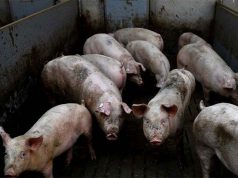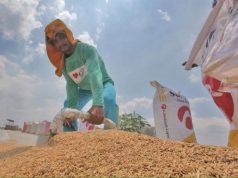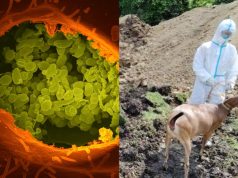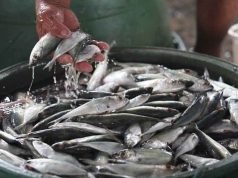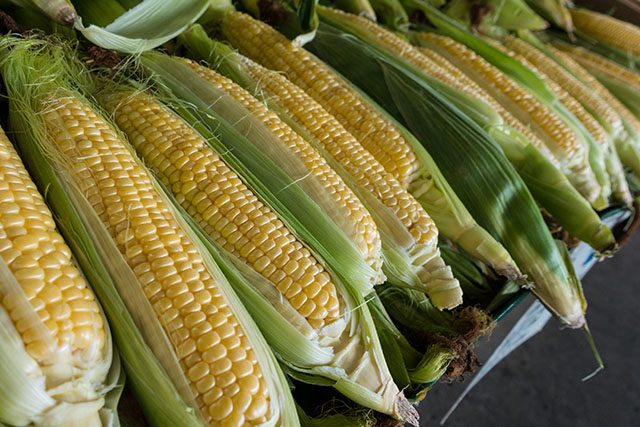
The Department of Science and Technology stressed the importance of research when it featured a trivia on its Facebook page about a Filipino scientist who helped save the world from a corn crisis.
The government agency shared a trivia under a science website’s Facebook album titled “#FlipFacts 2019” where its October 10 entry was dedicated to Ricardo Lantican, an internationally-recognized pioneer in plant breeding.
Lantican co-authored a study that looked into how a fungal disease called southern corn leaf blight affected crops in the cornfield of the University of the Philippines-Los Baños.
His team found out that all of the affected plants had the T-cytoplasm trait but when they shared their discovery, only a few recognized its value.
“This changed a decade later, when a fungus called
Helminthospcrium maydis infected U.S. corn with the aforementioned disease, decimating the country’s corn yield in 1970,” FlipScience said.
“It was at that moment when the U.S.—and the world—realized that Dr. Lantican and his colleagues were already on to the problem way before it became a mini-disaster,” the science website continued.
The American corn industry “would have been spared from billions of dollars’ worth of losses” if sufficient attention were given to the findings of Dr. Lantican and his team.
“In other words, farmers’ livelihoods were saved and the world dodged a corn crisis, simply because Dr. Lantican and his colleagues were crazy about research,” the science website said.
Dr. Ricardo M. Lantican is recognized by the Department of Science and Technology-National Academy of Science and…
Posted by DOST-Philippines on Wednesday, October 9, 2019
Dr. Lantican devoted much of his time and effort into researching and breeding enhanced varieties of leguminous crops such as mungbean or “munggo,” soybean and peanut.
He was able to recognize the role of legumes as a major source of protein in the Filipino diet and thus, improve the crops’ yield, longevity and its resistance to diseases with the help of his colleagues.
His pioneering agricultural work emphasized the importance of genetic diversity in major crops.
By 2005, the government conferred Dr. Lantican the title of National Scientist in recognition of his significant scientific contributions towards agriculture, particularly for developing over 20 enhanced mungbean, soybean and peanut varieties.
When the DOST featured him on its Facebook page, it stressed the importance of scientific research in attaining significant development.
“That’s the value of research,” the agency said with a winking emoji.
‘Aanhin n’yo ba ‘yung research?’ Agricultural research budget questioned
The DOST’s Facebook post was well timed as the Department of Agriculture met criticism from the chairman of the Senate committee on agriculture for allocating a large amount of its budget on research.
Sen. Cynthia Villar in a budget hearing in the Senate questioned its decision to allocate P150 million of its P120 billion proposed budget for research on the National Corn Program.
“Bakit parang lahat ng inyong budget puro research? Baliw na baliw kayo sa research. Aanhin ninyo ba ‘yung research? Ako, matalino akong tao, pero hindi ko maintindihan ‘yang research niyo, lalo na ‘yung farmer. Gusto ba ng farmer ang research? Hindi ba gusto nila tulungan niyo sila?” she asked.
Villar asked the department to revise its proposed budget, saying that farmers needed more direct assistance.
“Kung ako farmer, gusto ko na bigyan ako ng seeds, bigyan ako ng machinery, kaysa ‘yung mga kung anu-anong ‘yan. Kaunting-kaunti lang ang ibinibigay sa farmers kaya ang ating mga farmers continuously naghihirap,” she said.
Some Filipinos were not too happy with her remarks, claiming that research is just as important in agriculture development.
“Research gives us more insight on what we can improve in agriculture so we can help farmers cultivate their crops better and yield more during their harvests,” a Twitter user said.
A physician and medical anthropologist recalled a conversation he had with a Vietnamese scientist on rice production.
"First is land reform," a Vietnamese scientist told me when I asked how they overtook us in rice production. "Second is research."
If Cynthia Villar cannot appreciate the role of research in agriculture, she has no business chairing the Senate Committee on Agriculture and Food.
— Gideon Lasco (@gideonlasco) October 10, 2019
Agricultural research is important since many of the new technologies, inputs and techniques of production that increase agricultural productivity are developed through this process.
“A transformed agricultural research system helps to achieve sustainable food and income security for all agricultural producers and consumers, particularly for resource-poor households, whether they are in rural or urban areas,” an article from an international agricultural journal said.
“A transformed agricultural research system helps to achieve sustainable food and income security for all agricultural producers and consumers, particularly for resource-poor households, whether they are in rural or urban areas.”
Agricultural research also improves productivity, increases incomes of people working in that sector and change practices in the industry.
“Various impact assessments have shown that it is one of the most effective investments when it comes to increasing agricultural production,” a newsletter released by the European Commission reads.




